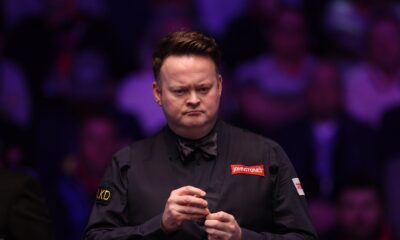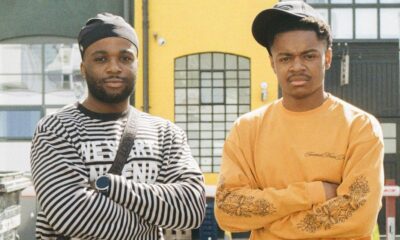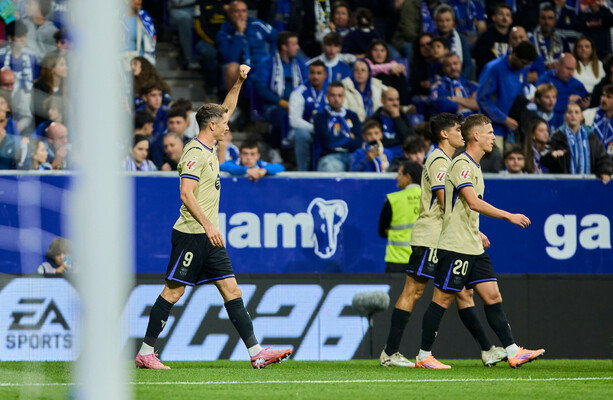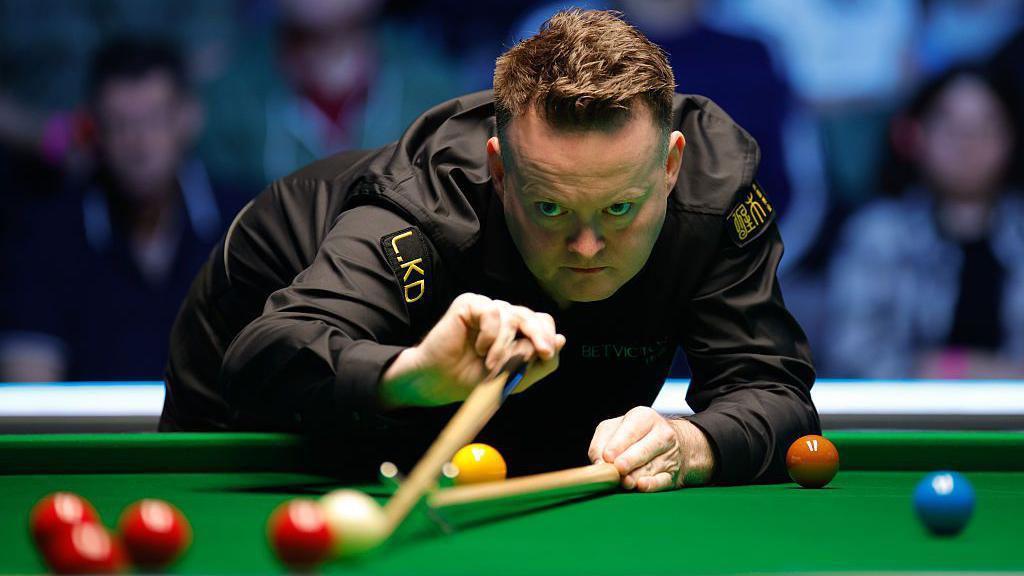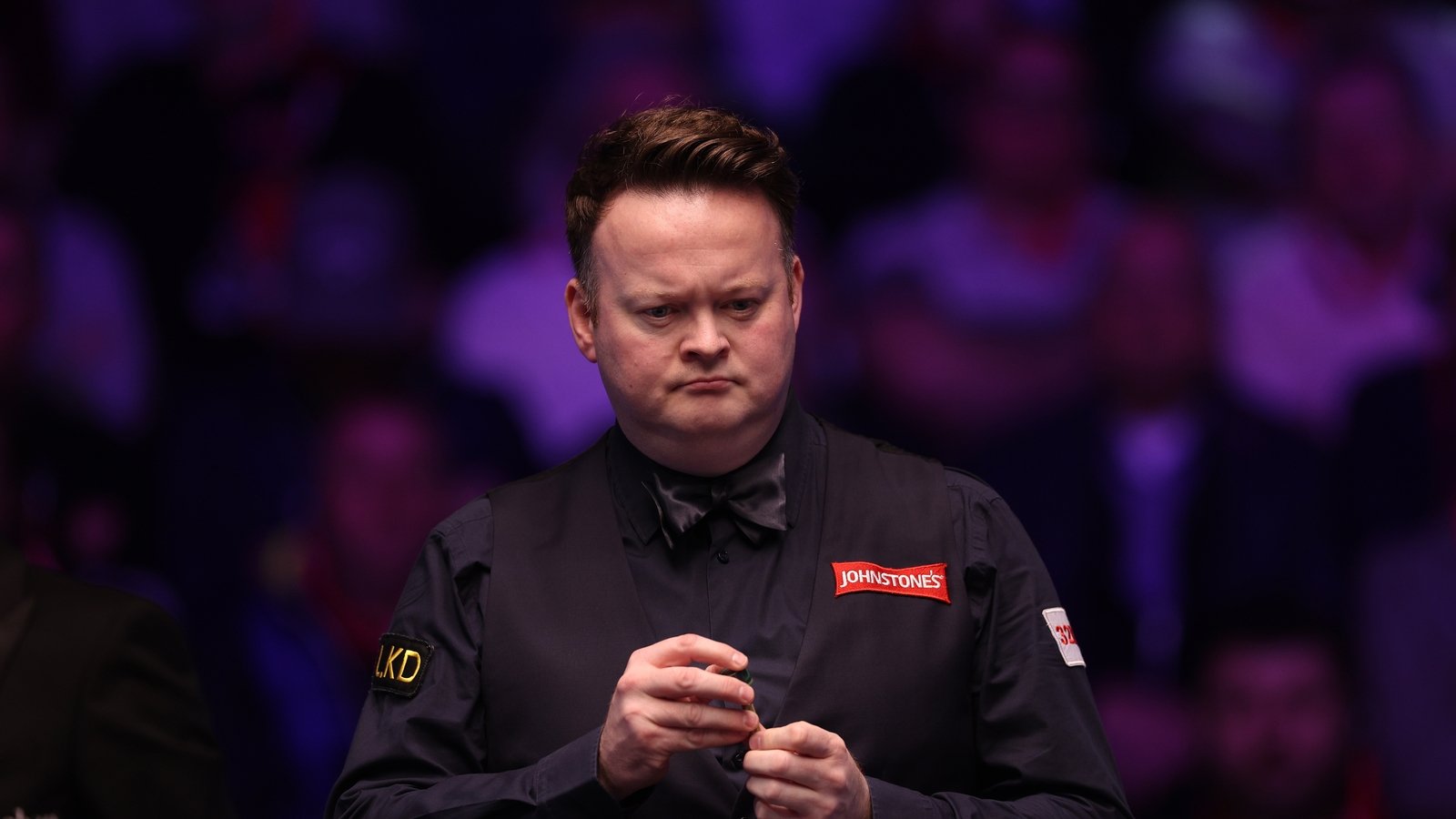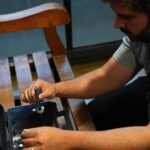WHAT IS IRELAND’S oldest sport, its ancient pastime which harnesses the spirit of those who live here and leans into the nature of the island?
Hurling is what we usually tell ourselves. Some 3,000 years and counting people have been putting stick-to-ball.
Yet hurling is still only in the minor ranks compared to some of the more primal pursuits. For as long as there have been humans on this land, and wherever they were before they pointed the boats north-westwards, they ran.
When Ireland’s first inhabitants wanted to get anywhere they’d have to forge a trail. Once the path was there then you could get to places quicker if you broke into a jog, pumped the legs up the hills and careered down slopes letting gravity and dexterity carry you along.
Trail running could make a case for being our oldest athletic pursuit, or even the first form of rapid public transport.
Tomorrow morning at 7am Irish time, 8am local, when many of us are setting out on the commute, Luke Weldon will be standing on the start line of the Short Trail at the World Mountain and Trail Championships in Canfranc, in the Spanish Pyrenees.
He’ll have been up at 5am to eat a small bowl of cereal. After that he’ll have sat on the bed, relaxed, eaten a banana and got a carb drink mix down. A 30g gel will be ingested a half hour before the race. He’ll have to keep those levels topped up as he goes along, the rate being 100g an hour.
All of that is second nature to him by now. Part of a routine that helps him to be set at the start tape, ready for this ‘short’ trail: 44 kilometres through the mountains with 3,600 metres worth of elevation to keep the views varied and spectacular.
Go.
*****
Earlier this week and Weldon, a 20-year-old from Glencormac, Co Wicklow, is sitting across from The 42 at a cafe on the Bray seafront.
He has spent the early morning running the Little Sugarloaf trail. Nothing too hectic, just keeping the legs turning as Friday nears.
The main thing for him is to be fresh. Left to his own instincts, Weldon admits he’d likely overtrain. An obsessive streak he’s always had with sport would kick in, but he’s learning now that there is a different, smarter way.
“If I go in overtrained at all the race is not going to go well because it’s so long,” he says, “so I’ve come into both the trials and this race not underprepared but really fresh.”
Fresh is the word his coach Julia Davis uses all the time. Weldon has been guided by the Cornwall-based woman since last October. He credits her with helping him get his best results yet and qualify for the World Championships.
The pair have never met in person. Everything has been done through video calls, whatsapp messages and an app which tracks his pace, heartrate and cadence amid a mine of other data.
He puts in around 90-100km a week, with about 3,500-4,000m elevation.
The older lads he trains with would do a bit more, about 130-140km. “Maybe next year the training might ramp up a bit more but if I make that massive jump too soon then I’m going to not last long.”
Weldon likes to delve into the data, but has come to realise that, like putting in miles, you can get to the point where enough becomes too much.
“I use it as another tool, not the main tool,” he says. “A few years ago I got too fixated on the data. I’d wake up in the morning and I’d see that my recovery score is 30% and maybe if I didn’t have it I’d be like, ‘Oh that’s grand’ but because I see that I’m thinking, ‘Ah this is going to be a really hard day in training or it’s not going to go well from the start’.”
Nowadays he says it mainly comes down to “how do I feel”? Davis asks him this all of the time.
“She’s not here in the country so she can’t see what I look like; if I’m turning up at a session a bit unmotivated, or a bit tired looking.”
This puts an onus on him to be frank and transparent with himself as much as the coach.
“Her approach is she wants you to really enjoy the sport. Then she wants you to always feel fresh, always feel good while running.”
*****
It might seem natural that an athletic young fella from the foot of the Wicklow mountains would grow up running the trails. But we know that’s generally not how it goes in this country. Sport tends to take place inside the white lines.
Weldon counts himself a big rugby fan and he played at out-half in school in Temple Carrig in Greystones up to the age of 15. This wound down due to “a few too many concussions” which happened playing rugby and Gaelic football earlier with local club Clann na Gael. He reckons he had four, two in rugby and two playing GAA.
“I still love watching rugby,” he says.
He played golf then and in fourth year in school got into rock climbing. This became something of a fixation, he says. Hour after satisfying hour spent on an indoor wall. He managed to get himself on the Irish development team and hoped to one day make it to the Olympics. When Covid hit he built himself an outdoor, 40-degree, climbing wall.
“But then I basically overtrained and I got injured,” he says, holding out his hands with two knuckles that are swollen, the result of synovial joint distress.
“Climbing injuries are weird,” he says. “You’re putting so much stress through your fingers, it’s inevitable that if you get something like that and if you don’t get that proper recovery, physio and everything after that then it’s not going to be the best.”
This, he says, is why he has to rein himself in now. Passion must not cross to excessive wear and tear and then injury.
“I don’t want to fall into the same trap as what happened with climbing . . . because that is kind of what my psyche is. I like to just train loads. And if I didn’t have this coach I would probably 100% be overtrained going into this World Championships.”
Weldon found trail-running while injured, doing a bit of road running to keep fit. Then a neighbour involved in the IMRA (Irish Mountain Racing Association) scene said there was a race on Little Sugarloaf, why not come along? This was four years ago, “quite recent”. He looks back on pictures from then and sees “such a novice”. He didn’t quite know what he was doing, but he knew he liked it.
The climbs – well, he’d get to become proficient at those and even come to enjoy them. But at the time he wanted them out of the way. Just get me to the descents.
“Yeah, it’s something about running downhill, not thinking about anything because if you think about you’re going to fall you will just fall,” he says.
When you’re running downhill “you’re just kind of letting go and being just . . .” he tails off to consider the feeling of speed and momentum and being locked into the moment, all conscious thoughts silenced. It’s a bit like being on a mountain bike, he says. Your mind is empty and focussed solely on picking your line.
“You can’t teach someone to run downhill,” he says. “Basically you don’t do anything to run downhill – let gravity just take you and the more you let that happen the faster you go.”
This trust in the elemental forces and an ability to commit fully to the act helped him make fast progress in the sport. He could pass other, more experienced, competitors running downhill. Though he makes the point that the stakes were sometimes lower for him.
“Obviously I was young, 16, you know, I didn’t have much of a brain on me and I was racing adults who were maybe 40 with a job and they didn’t want to break their ankle. I was like, ‘I don’t really care, I’m just going to go for it’.”
*****
Weldon is in Canfranc as the youngest member of the Irish senior team.
He did shorter races at first, around 6k, and found it alright, but never felt it was something in which he could excel. Lads from the track would turn up for those runs and their ability to keep the heartrate high for a short enough distance meant they’d burn him on the climbs.
“I’d always fall way too far behind,” he says, “I was never be able to get them on the downhill so I thought ‘This is ok, but is there anything else?’”
That chance came at the Youth World Skyrunning championships in 2023 in Italy. First there was a “vertical Kilometre” race, 3.8 km long with a 1,033m ascent. That was more of the same: good, challenging, but not entirely satisfying.
But then came the 23k race with 2,226m of climbing. As the race went on and the minutes turned to hours Weldon had a thought. “I like this now . . . This is what I really like. Being out there for a bit longer, being able to have a few ascents and descents in a single race.”
Weldon’s physiology suits the longer slog. He has a resting heart rate of 38-40. And during lengthy runs it keeps a fairly steady rate.
“On climbs it’s up around 165-170 and 120-130 on descents. But then throughout I never really have too much of really sharp dips; you look at a whole long race and it would stay pretty constant.”
On the mental side he has “no idea” where he gets it from, being able to stay out there for races which can be five-to-six hours long. Certain people perhaps just have that something that’s innate where they want to get out and settle into a rhythm and keep going long past the point where it would be sensible to stop. During Covid times Weldon did a charity challenge for Pieta House where he did 100,000 steps in a day.
Another day he set off into the mountains and ran 60k, “just for fun to see how far I could go”.
He adds: “I was way too young, I should never have done that and if I had a coach I never would have.”
It’s in longer races that Weldon has made strides. He crossed the line first with training partner Enda Cloake in the World Championships trial race at Granite Peaks at the end of May, a 53k race with 3,435 metres climbed.
“So that gave me a lot of confidence that I can do distance,” he says, adding this was his longest race to date.
He earned a third-place finish in August in a UTMB (Ultra-Trail du Mont-Blanc) race of 24km.
“To get on the podium of a UTMB race was pretty big for me. It’s a well known racing series and attracts high level athletes.”
He adds: “That came off the back of a racing stint I had in Europe. I went to another World Cup race with an even higher standard of racing and I came 30th. On paper it doesn’t seem amazing but there were around 300 in that race and it was won by the previous world champion so the calibre of athletes in those races are really high. I raced seven minutes faster than last year.
“Going into that UTMB race I didn’t actually feel amazing, didn’t feel too fresh, just went in saying, ‘I’ll race it’ and that’s been my last race.”
*****
Weldon has travelled to Spain as part of the team of 33 Irish competitors in the World Championships, with support from Athletics Ireland.
He’s able to run races around Ireland, Britain and Europe due to sponsorship deals done by agents Ryan Sosna Bowd and Lewis Renton of Portfolio Sports.
Grants from Sport Ireland are not yet available to trail runners because it is not an Olympic sport, though there is a push on to get it included for Brisbane 2032.
“Sometimes it’s hard watching guys get contracts and here I am training like a pro, but hopefully I’m going to get there,” he says.
A couple of days a week working at a leisure centre locally earns him money, and he also helps his dad Tim, a landscaper, sometimes. He’s been going out to work with his father from a young age and reckons the physical nature of the work has helped with endurance.
Weldon would like to make a full-time living out of the sport ultimately, but that’s not why he runs the hills.
“I just do the sport because I just fecking love doing it,” he says laughing. “If Athletics Ireland didn’t support us at the moment and if I’d qualified for the World Championships, I’d still go to the World Championships and find a way there.”
*****
Weldon counts himself lucky to be on the doorstep of some spectacular trails: Sugarloaf, Kilruddery, Belmont, Crone Woods, and Glendalough is a 30 minute drive away.
He’s also blessed, he says, to be part of a training group which includes athletes such Dublin City half marathon winner Killian Mooney, Matthew McConnell and Enda Cloake.
“They’re maybe six years older than me, they’ve all been on the senior Irish team before, lads I’ve kind of looked up to,” he says. “I started training with them last winter. I feel that being in that group has brought me on so much this year.”
Finding an elite group of mountain specific athletes to train with in Ireland is not so simple. Yet he stresses that this is a sport for the masses. If it’s your 100th race, you’ll go up and say hello to the person doing their first.
And afterwards: “No matter what your time is, you could win it, but you’ll still stick around for the guy coming 80th in the race.”
And you don’t have to be from near the country’s more mountainous terrains to get into the sport, you can be from anywhere with a bit of access to the outdoors. The feeling you’ll get from the air, the views and the living environment around you is both free and valuable beyond measure.
“I think it’s a thrill you can’t get in any other sport,” he says. “You’re not out running around roads, running around cars or a singular track. You’re running a route that next week will be different. It could be rainy, wet, warm, it’s always changing.
“Your mind wanders but it doesn’t really think. Sometimes if you’re on the road it can get a bit boring . . . I don’t know, for me it does. In the hills I’ve never had a boring run.
“There’s something about being in nature. It’s just nice and pretty peaceful.”
You can follow the exploits of Luke Weldon and the Ireland team at the World Championships from 25-28 September live here on YouTube.





